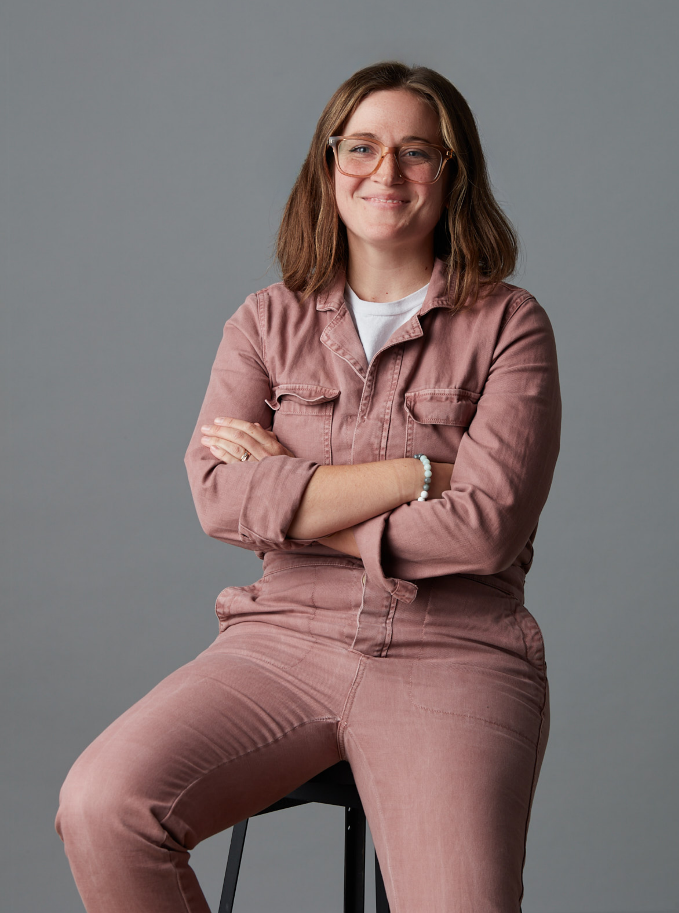What do you do now? And we’d love to hear a bit about how you got there as well.
My day job is writing advertising, marketing, and brand copy as a Senior Writer at REI Co-op. By moonlight, I write creative non-fiction with the hope of publishing a book of humorist essays.
I graduated from Hope with an English Major, Creative Writing Emphasis, and a Communications Minor. After graduation, I found a paid internship program for college graduates at a Detroit-based advertising agency. I applied to be a writer, but it was the social media team who hired me. My boss later told me, “I looked at your resume and saw something called the Mellon Scholars. I thought, ‘I don’t know what that is, but it sounds like we can trust her with the password to the Cadillac Twitter account.’”
How did your Hope English education shape you?
How didn’t it! I think about it often. Three aspects continue to rise to the top.
Faculty: Drs. Pablo Peschiera and Natalie Dykstra changed my life. I was blessed not only to be their student but also to have apprenticeships, so to speak, as a Teaching Assistant and through research projects and jobs on campus. The ability to have such deep ties and access to their wisdom was incredibly formative.
Method: Whether it was practicing our critique technique in Ceramics with the late, great Billy Mayer or having a heated discussion about whether we can truly know ourselves in Stephen Maiullo’s classical lit class, how to have open, honest, and respectful dialogue is the bedrock of a Hope education. It’s a skill that has paid true dividends over the course of my life in all aspects, from career to personal life.
Values: The faith-centered education at Hope gives you the tools to seek, develop, and nurture your personal values. It is vital to move through the world with an anchor. Hope helps you form yours. It asks, what do you hold dear? What do you consider to be moral, just, ethical? What would you do if you were faced with a challenge to your deepest beliefs? We wrestle with these questions our entire lives. Hope is a unique place in that it fosters curiosity, courage, and compassion as you seek the answers. That sticks with you long after graduation day.
What advice would you give to current English majors or students considering an English major?
Don’t be afraid of AI. Learn it. Use it. Think of the ways we can make sure we don’t abuse it. It might be intimidating to major in something the world says will be obsolete. Don’t let it scare you away. We need you now more than ever.
AI will never replace the beautiful, 100% certified organic neural network in that noggin of yours.
Favorite book read recently or in college?
These days I always have one book on hand and one book in-ear. “On-hand” is a physical book I grab when I have a minute to sit down and get lost. Right now that’s George Saunders’ A Swim in a Pond in the Rain. I love to read books about writing. I love Russian lit. It’s a win-win.
“In-ear” is an audiobook I listen to when I’m walking the dogs, rucking, running errands, or cooking. I’m on an insatiable Andy Weir kick right now. I started with Project Hail Mary, and I can’t stop.
What’s the worst advice you’ve been given?
At some point, the idea was put in my head that you must be good at something for it to be worth doing. And that’s rotten advice. I’m glad I discovered it’s not true.
First, no one starts off good at anything. Failure is a necessary predecessor to success. But even then, being good at something isn’t the point. It’s the doing at all.
Last summer, I started fishing as a hobby. There’s a lot of stabbing myself with hooks and getting line caught in trees and knots breaking at the worst possible moment. I wouldn’t trade it for anything. I’m not crushing any state-record monster bass, just embracing looking foolish in the pursuit of happiness.
It’s humbling and wonderful to enjoy something and not be good at it. Claw away at that song on the banjo. Take as long as you need to run that mile. Reel in that average-sized fish. You don’t have to be good at something for it to be good for you.
If you could start a nonprofit, who would it help?
My dream is to retire young and run a nonprofit that trains and places service dogs with American veterans at no cost to them or their families.
What’s something that has surprised you since graduation?
How many people don’t know how to write clearly, even graduates from copywriting programs at state university advertising schools. It is a precious and valuable skill.



